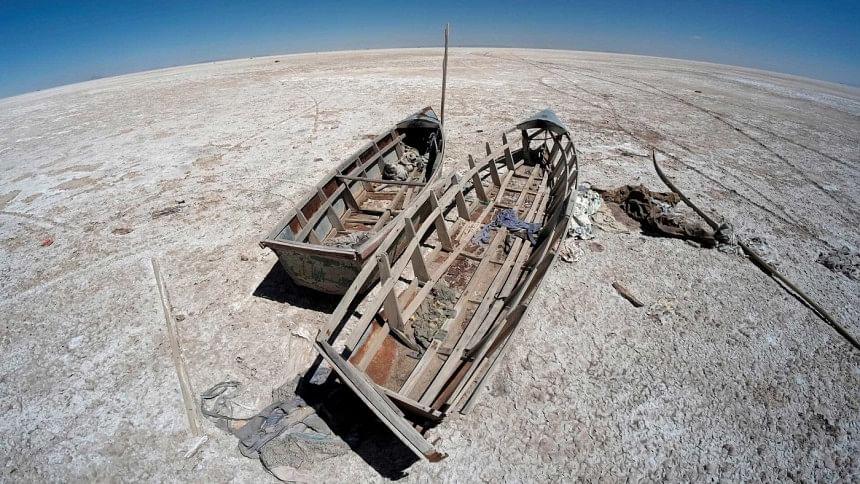Time to Focus on the Global Goal on Adaptation

During the negotiations that led to the historic Paris Agreement at the 21st UN Climate Change Conference (COP21) in 2015, the climate vulnerable countries argued for and succeeded in getting the global goal on mitigation of staying below two degrees Celsius—and if possible, below 1.5 degrees Celsius. This was indeed a remarkable achievement for the vulnerable countries at that time.
At the same time, the vulnerable developing countries, led by the African Group of Negotiators (AGN), also argued for having a Global Goal on Adaptation (GGA). This was achieved through Article 7 of the Paris Agreement.
However, unlike mitigation, where a simple temperature goal was possible, there was no such simple goal for adaptation stated, as it is context-specific and difficult to aggregate to a global level. Hence an agreement was reached that there would be further discussion on defining the GGA over time.
Unfortunately, over the last few years, there has not been much progress—until last year at COP26 in Glasgow, UK, where the Glasgow-Sharm el-Sheikh work programme on GGA was established to achieve an agreement on the definition and parameters of the GGA by COP28 in Dubai in 2023. This work programme will be launched by inviting submissions from all the countries on what they would like to see in the GGA, to be submitted to the Secretariat of the United Nations Framework Convention on Climate Change (UNFCCC) by the end of this month.
Bangladesh is preparing its submission, and I am taking this opportunity to offer some thoughts for their consideration.
First, we need to acknowledge that agreeing on the GGA is quite complex and by no means easy, as there are different ways to develop such a goal that are not compatible with each other. Hence, it is quite likely that we may end up having several different goals for different aspects of adaptation to climate change.
The main dichotomy in approaches is whether to take a top-down approach, like we did for mitigation, or a bottom-up approach, which may be more appropriate for adaptation. In the end, I believe we will need to agree to a combination of both approaches for the final GGA.
My first recommendation will be a top-down approach to providing finance for adaptation in the developing countries by the developed countries—the latter have already agreed to provide USD 100 billion a year for both mitigation and adaptation measures. However, so far the developed countries have failed to provide the full amount, and they only allocated 20 percent of their funding to support adaptation, while 80 percent went to support mitigation.
So the first goal should be to have half of the funding to be channelled towards adaptation efforts, and that should be prioritised for the most vulnerable communities in the most vulnerable developing countries. Each developed country should allocate half its funds for adaptation, and clearly report where the funds are going and through which channels. There should also be a neutral independent body under the UN to monitor these fund flows.
The second, more bottom-up approach, that I would recommend is the building of adaptive capacity of the most vulnerable communities in every country, since adaptation is now happening in both poor and rich countries. This requires a focus on Locally Led Adaptation (LLA), where Bangladesh is an accepted world leader and can help develop the metrics and methods for implementing and monitoring progress towards the global goal over time.
My third and final recommendation is to emphasise the need for a monitoring, evaluation and learning (MEL) approach to develop the methodology of both implementation and evaluation of progress as adaptation is quintessentially a learning-by-doing process.
I would also like to point out the importance of the global stocktake of progress of the Paris Agreement, which will take place in 2023, and it is essential to have some way to take into account the progress on adaptation—particularly the GGA. Failing to agree on the GGA in time will mean that the global stocktake will not be able to include adaptation, which will be a major setback.
So, Bangladesh has the opportunity to play a significant role in negotiating how we should determine the approaches to agreeing upon the GGA in the next two years, and also play a leading role in monitoring progress over time.
Dr Saleemul Huq is the director of the International Centre for Climate Change and Development (ICCCAD) at the Independent University, Bangladesh (IUB).

 For all latest news, follow The Daily Star's Google News channel.
For all latest news, follow The Daily Star's Google News channel. 



Comments